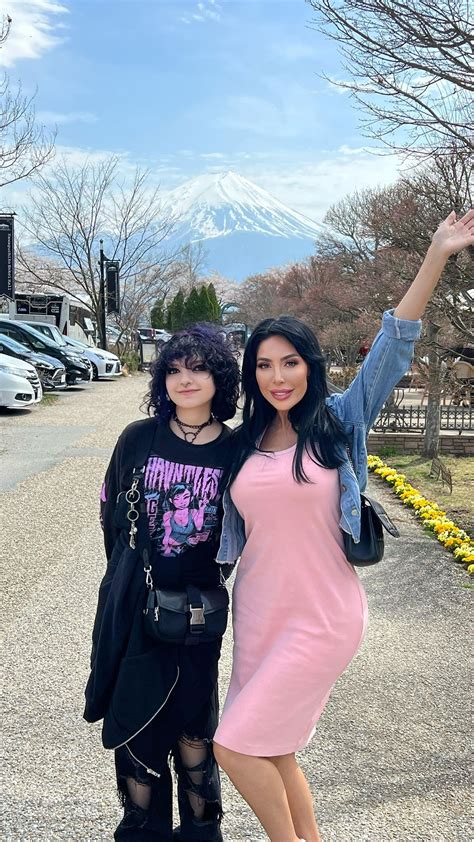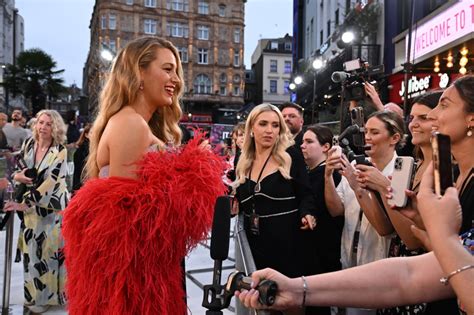
Luxury retail employees are sharing anecdotes about their interactions with wealthy clientele, revealing extravagant purchases, bizarre requests, and entitled behavior, offering a glimpse into the rarefied world of high-end shopping.
Former and current employees of luxury retailers have taken to social media to share their most memorable experiences with affluent customers, detailing both the extraordinary generosity and the sometimes-outlandish demands that come with serving the ultra-rich. These stories, often shared anonymously, paint a vivid picture of a world where money is no object and customer service is taken to the extreme.
One common theme emerging from these accounts is the sheer scale of spending. Employees recount instances of customers dropping tens of thousands of dollars on a single shopping trip, purchasing entire collections of designer clothing, and buying multiple versions of the same item in different colors. “I had a client who would buy every single color of a shoe or bag that we had,” one former sales associate revealed. “She didn’t even try them on. She just wanted them all.” The ease with which these purchases are made often shocks retail staff, highlighting the vast disparity between the financial realities of the wealthy and the average consumer.
Beyond the large sums of money involved, the stories also reveal the peculiar requests and behaviors that employees often encounter. One employee described a client who insisted on having a specific type of imported water flown in for their private shopping appointment. Another recalled a customer who demanded that the store be closed to the public so they could shop in complete privacy. “The store manager actually agreed to it,” the employee said. “We had to turn away other customers, but this person was a big spender, so they got whatever they wanted.”
The anecdotes also shed light on the sense of entitlement that some wealthy customers display. Employees report being subjected to rude and condescending behavior, unreasonable demands, and a general lack of respect. One former sales associate recounted an incident where a customer threw a piece of clothing at them because it wasn’t the right size. “She didn’t even say anything,” the employee said. “She just threw it at me and walked away.” Such incidents, while not representative of all wealthy shoppers, highlight the challenges that retail staff face in catering to a demanding clientele.
However, not all interactions with wealthy customers are negative. Some employees also share stories of remarkable generosity and kindness. One employee described a client who regularly donated designer clothing to local charities. Another recalled a customer who tipped them generously and wrote a glowing letter of recommendation. “It’s not all bad,” one employee said. “There are some really lovely people who shop at these stores. They’re just more likely to be discreet about it.”
The sharing of these stories on social media has sparked a debate about the ethics of serving the ultra-rich. Some argue that luxury retail employees are simply providing a service and that the spending habits of the wealthy are their own business. Others contend that the industry perpetuates inequality and that the focus on catering to the needs of the elite comes at the expense of serving a wider range of customers. Regardless of one’s perspective, the stories offer a fascinating glimpse into a world that is often hidden from public view, raising questions about wealth, privilege, and the nature of customer service in the age of extreme inequality.
The experiences shared by luxury retail employees underscore the complex dynamics at play in high-end commerce. While the industry thrives on providing exceptional service and personalized attention, it also grapples with the challenges of managing demanding clients and navigating the ethical considerations of serving a privileged few. The anecdotes serve as a reminder that behind the glitz and glamour of luxury retail, there are real people working to meet the expectations of a unique and often unpredictable customer base.
The emergence of these stories also reflects a broader cultural trend of sharing workplace experiences online. Social media platforms have become a space for employees to vent frustrations, share insights, and connect with others who understand the unique challenges of their jobs. In the case of luxury retail, these stories offer a rare glimpse into a world that is typically shrouded in secrecy, providing a platform for employees to share their perspectives and experiences.
The impact of these revelations on the luxury retail industry remains to be seen. While some consumers may be turned off by the stories of entitlement and excess, others may find them amusing or even intriguing. Ultimately, the success of luxury retailers depends on their ability to maintain a high level of service and exclusivity, while also adapting to changing social norms and expectations.
The original article included specific examples of employee experiences. For instance, one employee noted that a customer purchased a $20,000 bracelet without even batting an eye. Another mentioned a client who would call the store multiple times a day to check on the status of a minor alteration. These details, while seemingly trivial, illustrate the level of attention and dedication that is expected of luxury retail employees.
Furthermore, the article touched on the psychological toll that the job can take. Employees reported feeling stressed, overwhelmed, and even demoralized by the constant pressure to cater to the whims of demanding clients. The long hours, the intense scrutiny, and the need to maintain a perfect facade can be exhausting, leading to burnout and high turnover rates.
The stories shared by luxury retail employees also raise questions about the sustainability of the industry. The constant pursuit of luxury and the emphasis on conspicuous consumption have been criticized for their environmental and social impact. As consumers become more aware of these issues, luxury retailers may need to adapt their business practices to be more sustainable and ethical.
The luxury retail sector is a significant contributor to the global economy, generating billions of dollars in revenue each year. It employs millions of people worldwide, from designers and manufacturers to sales associates and marketing professionals. The industry is constantly evolving, driven by changing consumer tastes, technological innovations, and global economic trends.
In recent years, the luxury retail industry has been disrupted by the rise of e-commerce and the growing importance of social media. Consumers are increasingly shopping online, and they are using social media to research products, compare prices, and read reviews. Luxury retailers have had to adapt to these changes by investing in their online presence and engaging with customers on social media.
The COVID-19 pandemic had a significant impact on the luxury retail industry. Lockdowns and travel restrictions forced many stores to close temporarily, and consumer spending declined as people worried about the economy. However, the industry has rebounded in recent months, as consumers have started to spend again and luxury retailers have adapted to the new normal.
The future of the luxury retail industry is uncertain, but it is likely to be shaped by several key trends. These include the growing importance of sustainability, the increasing demand for personalized experiences, and the continued rise of e-commerce and social media. Luxury retailers that can adapt to these trends will be well-positioned to succeed in the years to come.
The sharing of employee experiences in the luxury retail sector, as highlighted in the Yahoo! Entertainment article, provides valuable insights into the inner workings of this exclusive industry. These stories not only entertain but also prompt reflection on broader societal issues related to wealth, consumerism, and the ethics of service. As the luxury retail landscape continues to evolve, understanding these dynamics will be crucial for both industry professionals and consumers alike.
Frequently Asked Questions (FAQ)
1. What are some common themes that emerge from luxury retail employee stories?
Luxury retail employee stories often highlight themes of extravagant spending, bizarre requests, entitled behavior, remarkable generosity, and the psychological toll of catering to demanding clients. Employees recount instances of customers spending vast sums of money on single shopping trips, making unusual demands such as requiring specific imported water, and exhibiting rude or condescending behavior. However, some stories also reveal instances of generosity and kindness from wealthy clients.
2. How does the spending behavior of wealthy customers impact luxury retail employees?
The spending behavior of wealthy customers can have both positive and negative impacts on luxury retail employees. On the one hand, high sales volumes can lead to higher commissions and bonuses. On the other hand, the pressure to meet the demands of wealthy clients can be stressful and overwhelming. Employees may also face ethical dilemmas when dealing with customers who are spending large sums of money on non-essential items.
3. What are some examples of bizarre requests made by wealthy customers in luxury retail settings?
Examples of bizarre requests include demanding that the store be closed to the public for a private shopping experience, requiring specific types of imported water to be flown in for a shopping appointment, and calling the store multiple times a day to check on the status of minor alterations. One employee mentioned a client who insisted on having a red carpet rolled out from her car to the store entrance. These requests often highlight the level of personalized attention and accommodation that wealthy customers expect.
4. What is the psychological toll of working in luxury retail, according to employee accounts?
Employees report feeling stressed, overwhelmed, and even demoralized by the constant pressure to cater to the whims of demanding clients. The long hours, the intense scrutiny, and the need to maintain a perfect facade can be exhausting, leading to burnout and high turnover rates. Some employees also struggle with the ethical implications of serving a privileged clientele and witnessing extreme displays of wealth.
5. How has social media influenced the sharing of luxury retail employee experiences?
Social media platforms have provided a space for luxury retail employees to share their experiences anonymously and connect with others who understand the unique challenges of their jobs. These stories offer a rare glimpse into a world that is typically shrouded in secrecy, providing a platform for employees to vent frustrations, share insights, and spark discussions about wealth, privilege, and customer service. The sharing of these experiences can also influence consumer perceptions of luxury brands and the industry as a whole.
The nature of the requests can vary widely. For example, one employee recalled a customer who wanted a specific shade of purple that was not available in the current collection. The employee spent hours trying to source the exact color, eventually finding a similar shade from a different brand and having it custom-dyed for the customer. This level of personalized service is often expected in luxury retail, but it can also be incredibly demanding for employees.
The entitlement displayed by some customers can also be challenging to deal with. Employees reported being subjected to verbal abuse, unreasonable demands, and a general lack of respect. One employee recounted an incident where a customer demanded that they personally deliver a package to their home, even though the store offered a delivery service. When the employee refused, the customer threatened to complain to their manager. Such incidents highlight the power dynamics at play in luxury retail and the need for employees to navigate these situations with diplomacy and tact.
However, it is important to note that not all wealthy customers are difficult to deal with. Some employees shared stories of remarkable generosity and kindness. One employee described a client who regularly donated designer clothing to local charities. Another recalled a customer who tipped them generously and wrote a glowing letter of recommendation. These positive experiences serve as a reminder that there are many different types of wealthy customers and that it is important not to generalize.
The sharing of these stories on social media has sparked a broader conversation about the ethics of serving the ultra-rich. Some argue that luxury retail employees are simply providing a service and that the spending habits of the wealthy are their own business. Others contend that the industry perpetuates inequality and that the focus on catering to the needs of the elite comes at the expense of serving a wider range of customers. This debate raises important questions about the role of luxury retail in society and the responsibilities of both businesses and consumers.
The luxury retail industry is a complex and multifaceted world. It is a world of high fashion, exclusive brands, and personalized service. It is also a world of demanding customers, long hours, and ethical dilemmas. The stories shared by luxury retail employees offer a fascinating glimpse into this world, providing insights into the challenges and rewards of working in this unique industry.
Moreover, the impact of these stories extends beyond the luxury retail sector itself. They reflect broader societal trends related to wealth inequality, consumerism, and the changing nature of work. As more and more people share their workplace experiences online, we are gaining a deeper understanding of the challenges and opportunities that exist in different industries. This increased transparency can help to create a more equitable and sustainable economy.
The rise of social media has also empowered consumers to hold businesses accountable for their actions. In the past, complaints about poor customer service or unethical business practices were often confined to private conversations. Today, consumers can share their experiences online, reaching a wide audience and potentially damaging a company’s reputation. This has led to a greater emphasis on customer satisfaction and ethical behavior in the luxury retail industry.
Luxury brands are increasingly aware of the need to be socially responsible. They are investing in sustainable materials, reducing their carbon footprint, and supporting charitable causes. They are also working to create a more inclusive and diverse workforce. These efforts are driven by both ethical considerations and the recognition that consumers are increasingly demanding that businesses operate in a responsible manner.
The luxury retail industry is constantly evolving, driven by changing consumer tastes, technological innovations, and global economic trends. In recent years, the industry has been disrupted by the rise of e-commerce and the growing importance of social media. Luxury brands have had to adapt to these changes by investing in their online presence and engaging with customers on social media.
The COVID-19 pandemic had a significant impact on the luxury retail industry. Lockdowns and travel restrictions forced many stores to close temporarily, and consumer spending declined as people worried about the economy. However, the industry has rebounded in recent months, as consumers have started to spend again and luxury brands have adapted to the new normal.
The future of the luxury retail industry is uncertain, but it is likely to be shaped by several key trends. These include the growing importance of sustainability, the increasing demand for personalized experiences, and the continued rise of e-commerce and social media. Luxury brands that can adapt to these trends will be well-positioned to succeed in the years to come. The insights from the Yahoo! Entertainment article and the stories shared by retail workers will be a guide to improving the luxury customer experience.
The discussions around extreme wealth displayed and catered to in the luxury market come at a time when wealth inequality is at historical highs in many nations around the world. The contrast of these luxury experiences and what many face daily is stark. This increased awareness could further push the need for brands to show their efforts towards corporate social responsibility and demonstrate ethical practices and standards across the board.









